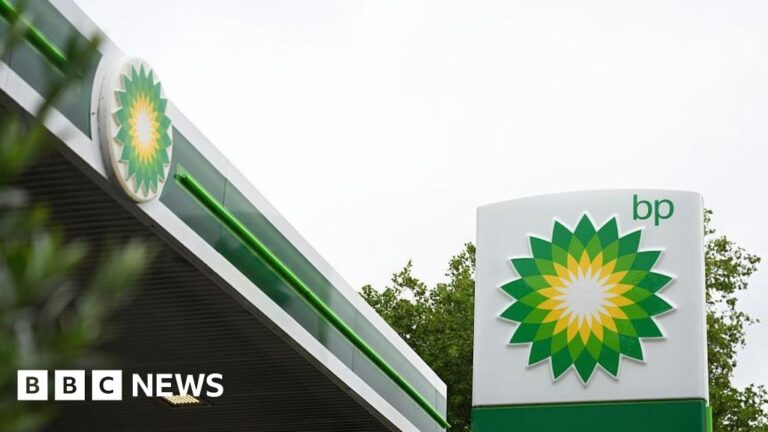Energy giant BP says it has made its largest oil and gas discovery this century as it shifts its focus away from renewable energy and back to fossil fuels.
The UK-based firm said on Monday that it is conducting tests at the site in deep water off Brazil’s east coast. The discovery could play a major role in BP’s plans to increase crude oil production.
Company executive Gordon Birrell says the discovery is “BP’s largest in 25 years” and that the firm will explore building a production hub there.
In February, BP slashed its planned investments in renewable energy and said it would spend billions of dollars more a year on its oil and gas operations, as it aims to boost investor confidence.
BP said it had found a roughly 500-metre area of oil and gas at the Bumerangue block in the Santos basin, 250 miles (400km) off Brazil’s east coast.
It said the discovery was the company’s biggest since the Shah Deniz gas field in the Caspian Sea in 1999.
The find adds to BP’s several other discoveries of energy reserves this year, including those in the Gulf of Mexico, which is called the Gulf of America by the administration of US President Donald Trump, and Egypt.
“This is another success in what has been an exceptional year so far for our exploration team”, said Mr Birrell, the firm’s executive vice president for production and operations.
BP’s attempt to transform itself into a “net zero” energy producer has faced major hurdles since it put the plan into action five years ago.
In 2020, the Covid-19 pandemic pushed it to a $5.7bn (£4.29bn) annual loss.
It also took a $25bn hit two years later from writing off a stake in its Russian energy business after the start of the Ukraine war.
However, on Tuesday it revealed better-than-expected results for the second quarter of 2025.
Underlying replacement cost profits fell by 15% compared with the same six months in 2024 to $2.4bn, but that was better than the $1.8bn analysts had forecast – and an improvement on the first quarter figure.
Derren Nathan, head of equity research at Hargreaves Lansdown, said a “slick turnaround plan pumped up BP’s second-quarter results”, despite lower oil and gas prices.
He attributed the performance to among other things, increases in production and the company “upping the ante when it comes to exploration and development”, culminating in this week’s announcement of the find at Bumerangue.
BP’s share price has come under pressure in recent years as it pumped billions of dollars into renewable energy, while rival companies benefited from soaring oil and gas prices in the wake of Russia’s invasion of Ukraine.
Last month, BP announced it had appointed Albert Manifold to succeed Helge Lund as chair of the company.
In April, Mr Lund announced his intention to step down, two months after BP revealed its plan to cut its renewable energy investments and instead focus on increasing oil and gas production.
The energy giant had come under pressure from some investors who felt it was underperforming compared to rivals.


